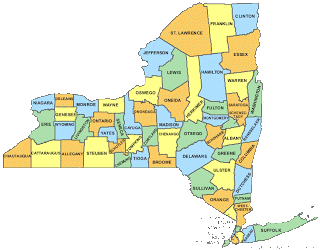
Summer is over. Fall is upon us. Schools are back in session (even in Chicago), and now is the time to start planning a Spring 2013 County History Conference.
It is a time of breaking bread and sharing stories among people with similar interests. We are a social species so bringing people together is good and it has advantages as people plan for collaborative activities in the future.
A county history conference is intended to bring together the heritage community in your county, including:
1. Municipal Historians
2. Historical Organizations both public and private
3. Social Studies Teachers
4. County Tourist Department
5. Scholars both independent and professional
6. Friends and lovers of history
The location should be for free such as a school, library, or college and provide a place for display tables. Be sure to tape the program for public access TV or online distribution.
A suggested schedule might include:
Morning
Welcome by the County Executive and/or County Historian
First Session – An invited speaker on some aspect of county history. This year, the role of the county in the War of 1812 and/or Civil War would be appropriate.
Second Session – Historical organization presentations, perhaps two or three 20-minute each, or a panel discussion.
Third Session – Municipal historian presentations, similar to the second session. Perhaps the role of archives given the decision by the State of Georgia this year to close its State Archives.
Afternoon
Lunch – A bag lunch, or partner with a local historic restaurant.
Fourth Session – “County Paths Through History” presentation and discussion led by the county or regional tourism officials about the Path Through History program.
Fifth Session – “Teaching Our County History” presentations by teachers who use county history in the classroom beyond the standard 4th grade field trip.
Sixth Session – “County History Awards” for excellence or special activity in promoting county history, including student presentations.
Who Takes Charge?
If you don’t have a county historian, advise your county executive that you are in violation of state law.
If your county historian doesn’t want to take the lead in organizing a count history conference, ask for his/her blessing in organizing one yourself.
What’s Next?
The next step is to create a regional history conference, perhaps based on the ten regions created in the Path through History project. Those would be more elaborate events, organized around a college with a local or state history program.
Keep in mind the need for cross-communication. There are many state and regional conferences which are routinely held and there is a need to reach out beyond one’s niche, rut, or comfort level.
Peter Feinman founder and president of the Institute of History, Archaeology, and Education, a non-profit organization which provides enrichment programs for schools, professional development program for teachers, public programs including leading Historyhostels and Teacherhostels to the historic sites in the state, promotes county history conferences and the more effective use of New York State Heritage Weekend and the Ramble.






Peter,
Your ideas are great but your timing is out of sync. You need to set down with Gerry Smith, President of APHNYS. You will find out that in spring our focus is on our Annual State Conference…the fall is when we focus on local conferences. Here in Wayne County the history community gets together every other month all year long, then I plan a regional conference for the fall. I am planning the Finger Lakes Region (APHNYS Region 11) Fall Conference as I write this. It will be in Penn Yan, Yates County on November 3rd. Anyone is welcome to join us…it is open and free.
Peter Evans
Wayne County Historian
Region 11 Coordinator